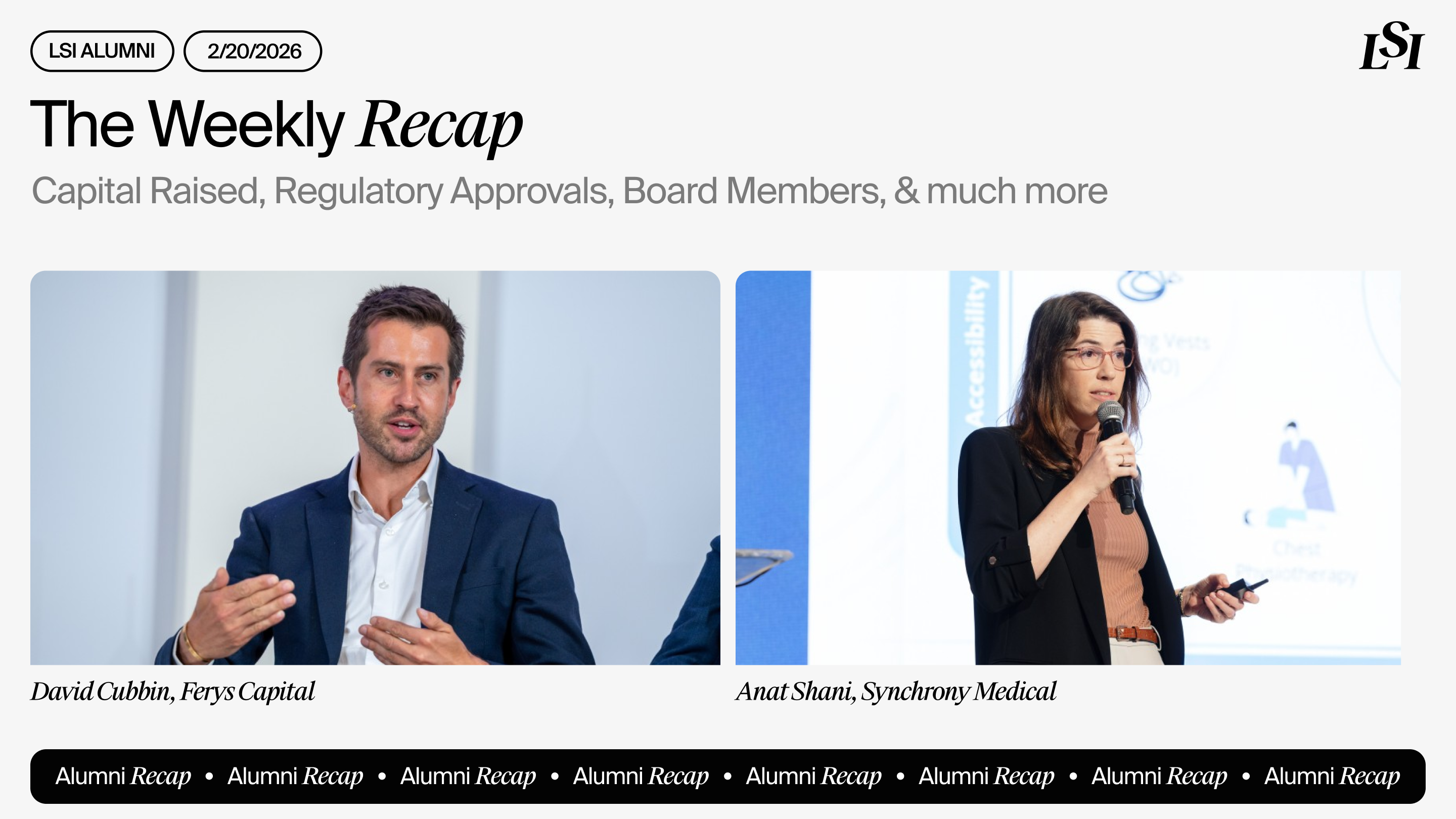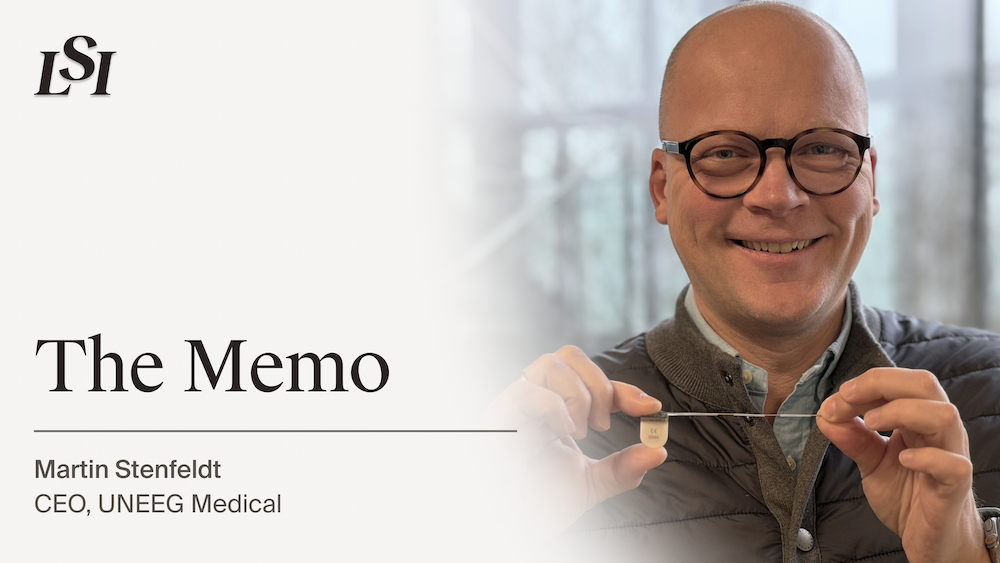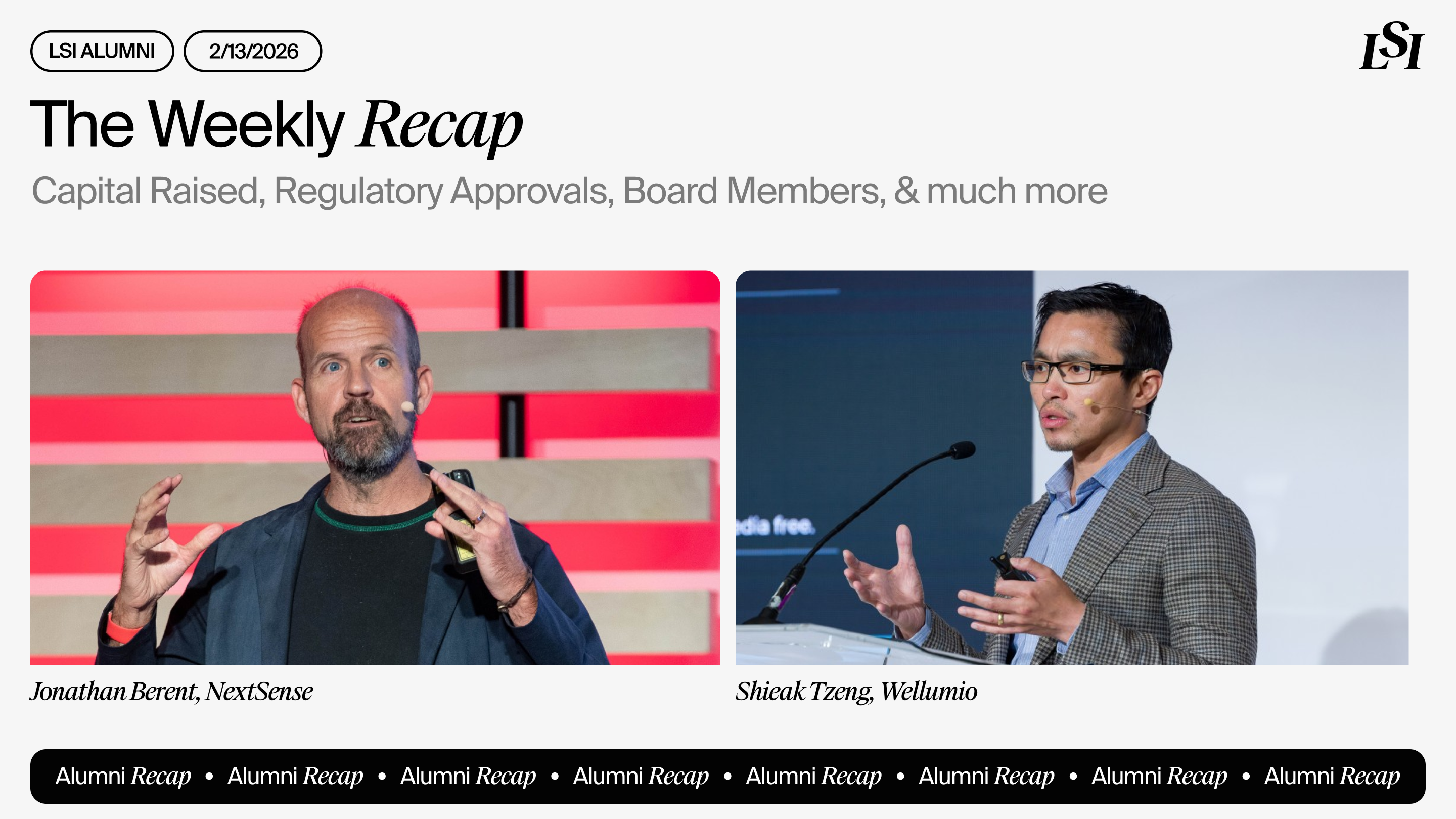
Under the direction of President and CEO Dr. Upma Sharma, Arsenal Medical is rethinking the role of materials in medicine—building device solutions from the molecule up to meet critical underserved needs.
“Our founders asked a simple question,” Sharma said. “Instead of repurposing household materials like sausage casings and girdles—the origins of the first artificial kidney and heart, respectively —could we harness the power of chemistry and material science to design better devices for patients? Could the materials become the devices?”
With two clinical-stage products, a culture of innovation, and a team fueled by mission-driven focus, Arsenal is proving that biomaterials can—and should—be innovatively and thoughtfully designed for healthcare.
Origin Story
Arsenal Medical traces its roots to a team of founders behind breakthrough companies like Moderna and Genzyme. The vision: bring material science rigor traditionally seen in fields like clean tech and pharma into medical devices.
Sharma’s personal journey at Arsenal began at the bench. “I started as a research scientist after finishing my PhD in chemical engineering,” she said. “Over time, I fell in love with learning every part of the company—regulatory, clinical, business—and eventually took on leadership.”
Arsenal developed a unique approach: instead of modifying existing materials, they create novel biomaterials tailored to specific clinical needs. The science behind these novel biomaterials has been validated through funding from agencies such as the National Cancer Institute, National Heart, Lung, and Blood Institute, and DARPA and has been described in peer-reviewed literature.
The Current Landscape
Today’s biomaterials used in many devices are legacy solutions—repurposed from unrelated industries and often poorly optimized for healthcare. Arsenal sees an opportunity to change this with next-generation, material-based products.
For example, liquid embolics used to treat brain conditions have traditionally contained toxic solvents or superglues—materials Sharma calls “non-ideal starting points” for sensitive applications in the brain and neurovascular system.
Similarly, in trauma care, no effective field-deployable solution exists for non-compressible hemorrhage, one of the leading causes of preventable death after injury.
Arsenal’s products aim to fill these gaps: innovatively designed, carefully engineered biomaterials that prioritize clinical performance and patient safety.
Inside the Innovation
Arsenal Medical’s two lead products exemplify its strategy of innovative biomaterials designed to meet specific clinical needs:
- NeoCast™: A solvent-free, non-adhesive liquid embolic engineered to treat brain bleeds and brain tumors. Unlike legacy embolic agents that rely on cytotoxic solvents or superglue-based chemistry, NeoCast leverages shear-responsive science to flow with the blood and penetrate deep into the distal vasculature. Preclinical studies demonstrated that NeoCast achieves significantly deeper penetration compared to market-leading agents—an advantage that may translate into faster patient symptom resolution. Clinical studies are showing promise in human subjects.
“We’ve built a material that’s solvent-free, non-adhesive, and gets to the root of the problem deep within the brain’s leaky membranes,” Sharma explained. “Physicians who used it in our first-in-human study reported that it was responsive, easy to control, and predictable.” Arsenal is initially focused on chronic subdural hematoma and pre-operative embolization of brain tumors, but sees opportunities to expand NeoCast into other vascular indications in the brain and throughout the body.
- ResQFoam™: A minimally invasive, life-saving foam system developed to stabilize internal abdominal bleeding after traumatic injury. Originally funded by DARPA, ResQFoam was designed to act like a “human Fix-a-Flat,” rapidly expanding to apply pressure to injuries while preserving blood flow to extremities. It offers a novel solution and could provide a critical bridge to surgical intervention in both hospital and prehospital settings.
ResQFoam has received FDA Breakthrough Device Designation and is being advanced through a clinical study under an approved IDE; its development has been supported primarily by non- dilutive funding.
Progress and Milestones
In the past year, Arsenal Medical has achieved major advances across both programs:
- Completed enrollment of the initial cohort in their chronic subdural hematoma study, meeting their primary safety and feasibility endpoints and demonstrating excellent usability.
- Announced positive results from a first-in-human study in pre-operative embolization of brain tumors.
- Advanced ResQFoam into a clinical study under an FDA-approved IDE and Breakthrough Device designation.
- Continued strategic engagement with U.S., Australian, and European clinical communities.
Looking ahead, Arsenal is focused on validating NeoCast’s ability to eliminate the need for general anesthesia and moving both programs toward pivotal trials and commercialization. “We’re now seeing the impact of our products on patients,” Sharma said.
Market Insights
Biomaterials play a pivotal role in wound management and trauma care by not only serving as passive structural supports but increasingly as active agents that modulate healing, reduce infection risk, and promote tissue regeneration—shifting treatment from repair to regeneration.
While these products have an extensive history of use in healthcare, next-generation biomaterials continue to elevate clinical outcomes.
Arsenal Medical’s lead product, ResQFoam, is part of the $4.9B Global Surgical Sealants and Glues market. According to LSI’s Compass database, these types of products -specifically hemostats and fibrin sealants- accounted for nearly 85% of product sales in this category in 2024. LSI projects that this market will see healthy growth over the next five years, increasing at a CAGR of 5.8% from 2024 to 2029.
Looking at Arsenal’s NeoCast liquid embolic, we see another high-growth market. Liquid embolics have seen increasing adoption as an adjunctive solution for tumor management. These products enable precise, minimally invasive occlusion of tumor vasculature, not only starving tumors of blood supply but also serving as a platform for localized drug delivery—offering a dual therapeutic mechanism with reduced systemic toxicity.
According to an upcoming market snapshot published by LSI on the embolization agents market, global sales of these products are on a trajectory of growth to reach over $1B in sales by 2030. This market is seeing above-market average growth, with global sales of embolic agents increasing at a CAGR of 8.2%.
Join Us at LSI Europe ‘25
Sharma has been selected to present at LSI Europe '25 (September 7-11) in front of hundreds of global medical technology companies. Join us in welcoming Sharma to the event in London, where she will share the latest updates on Arsenal Medical’s technology and development.

Schedule an exploratory call
Request Info17011 Beach Blvd, Suite 500 Huntington Beach, CA 92647
714-847-3540© 2026 Life Science Intelligence, Inc., All Rights Reserved. | Privacy Policy










